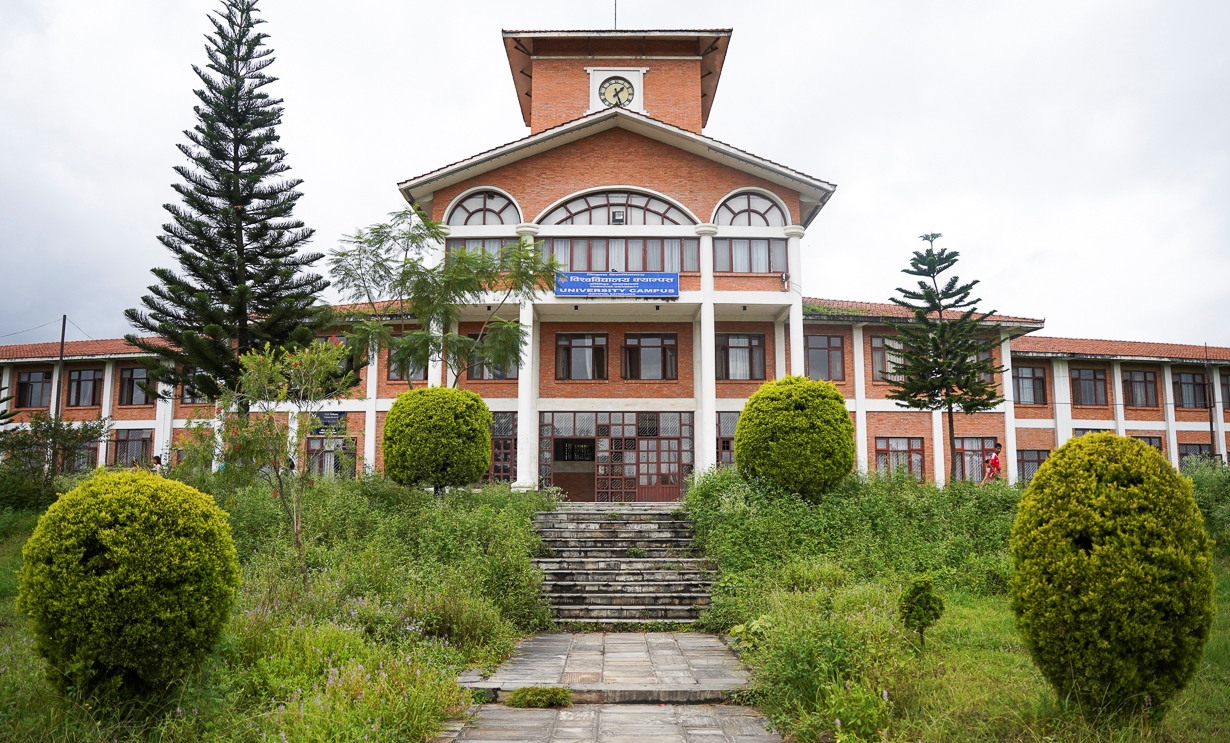Defendants with strong social clout pressure rape survivors to change their statements, prompting courts to sentence the victims instead. Further, an increasing tendency to engage in “bargaining,” is making the victims’ fight for justice harder and more isolating.
Durgalal KC |CIJ, Nepal
A few years ago, a woman who lived in a rental in Dang’s Tulsipur got close to Kishor Bhandari, a JCB bulldozer driver from Mathyaura village. The two were introduced on the sidelines of a house construction project and afterwards, they started talking regularly over the phone. Then one night, Bhandari went to the woman’s flat along with one Man Bahadur Gurung from Damargaun in Tulsipur-3. It was 2am on 3 June, 2019, and it was a night of heavy storm. When the woman heard constant knocks on the door, she opened it, thinking ‘somebody familiar must have gotten into trouble’. Once inside, the two men raped her, according to a complaint the woman filed with the police afterwards. She also mentions that the person who had come with Bhandari was in police dress. Gurung is a head constable employed at Area Police Office, Tulsipur. The man tasked with controlling crime was himself involved in perpetrating it.
Following the complaint, the police department concluded that the woman had been raped and sent its findings to the Government Attorney Office. Following review of the report, the government’s attorney filed a lawsuit against both of the accused. A series of actions were then taken to entice and pressure the woman to retract her remark.
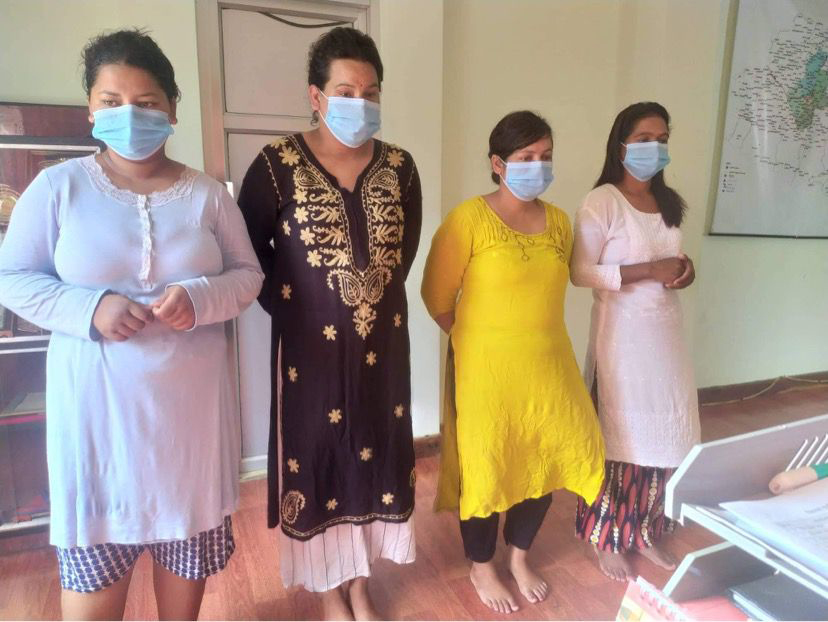
Women from Ghorahi-10 accused of bargaining with a gold trader threatening him with allegations of rape. Photos: Durgalal KC
The woman acknowledges that relatives of the accused, political figures, and people’s representatives have constantly pressed her to change her statement and offered to pay for it. She was initially committed to fighting for justice, but as the lawsuit got going, she was by herself. On the one hand, she was under pressure to retract her remarks, but on the other, no one offered any sort of backing. She then claimed that she had made a fraudulent complaint as a result of this.
Ultimately, the woman consented to alter her original statement, claiming that she had filed the complaint because the males had used profane language and that she had wounded herself after slipping on the floor. Bhandari and Gurung agreed to give her Rs. 500,000 each in exchange for that. The accused agreed to promptly give Rs 100,000 as part of a negotiated agreement. Additionally, they pledged to pay the remaining sum later. “The males who had hurt the woman on the night of June 3 had committed to contribute Rs50,000 each to the victim as medical fees and the woman would not mention it anyplace,” the written agreement said.
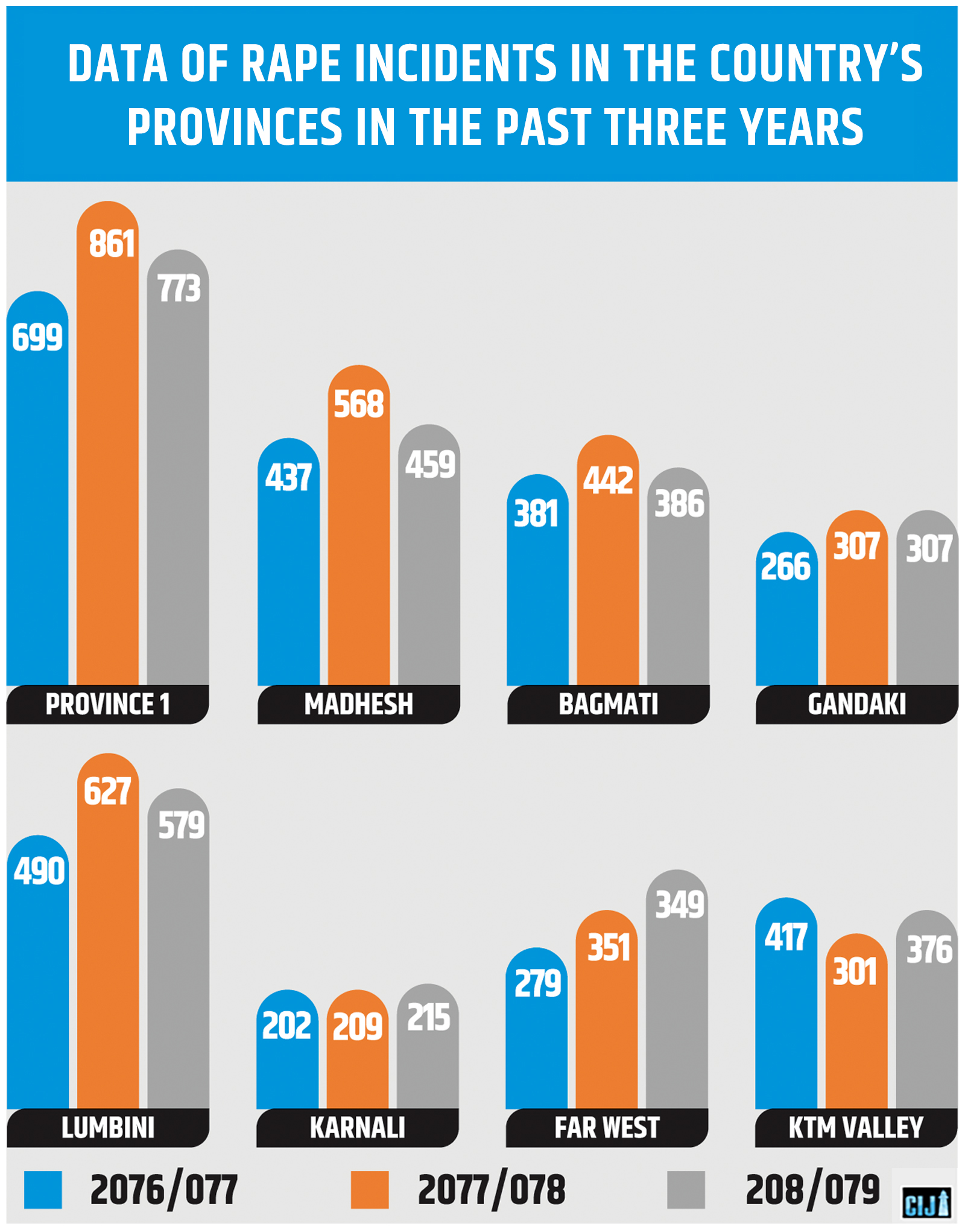
On September 1, 2019, the district court exonerated both defendants due to the woman’s altered statement. The Tulsipur High Court also upheld that judgment five months later.
The woman explains, “I had revised the statement because I couldn’t stand the pressure.” “They were exonerated, but they withheld the balance from me.” She got deeper into trouble when word got to her family that she had agreed to alter her original statement in exchange for cash. Her husband, who is stationed abroad, claimed they were no longer married.
The rumor is that the woman changed her statement in exchange for money. But when one goes through the documents, it becomes clear that she changed her statement after being unable to deal with pressure from all sides. The accused had forged an agreement to stop her from filing a complaint anywhere else in the future. And that has given leeway for the society to ostracize her now. “Now I am in a deep fix. Who will provide me justice now?” she says. “I couldn’t deal with so much pressure, and there was nobody standing by my side. I changed my statement under duress.”
This incident has raised some serious questions. Why are survivors like her forced to change their statement once they reach court? Why do they choose a way that gives clean chit to the accused? What kind of pressures are mounted on the victims once the case is launched? Advocate Goma Mahara, who has been fighting for rape survivors for years, says, “After being raped, victims feel alone. There are pressures from all sides for negotiation. The accused dangle a carrot to the underclass victims. And the victims in turn choose to lessen the pressure than to seek justice.”
Punishment to the victims instead
There are many incidents where the accused have received clean chit after pressuring the survivors to change their statement. But of late, a trend is on the rise where the victims are sentenced to prison instead. The court that sentences the complainants after they change their statement seems to completely ignore how they were compelled to claim their complaint was false.
Let us look at another instance from Dang. A woman filed a complaint that a 17-year-old boy lured her 16-year-old daughter on promise of marriage and raped her at his rented room in Narayanpur, Ghorahi-10 between March 2019 and May 2076. The court sent the accused to a juvenile rehabilitation center. In their statement, however, the woman and her daughter said the teenager was not raped. The woman said that the boy used to taunt her daughter with insistent phone calls and she had filed the statement to get rid of that. On September 25, 2019, district court judge Ritendra Thapa gave a clean chit to the accused and instead sentenced the complainant to 15 days in jail and Rs500 in fine. Further, the complainant was ordered to pay Rs15000 to the accused for compensation. The court’s order reads, “It is not normal for an adolescent to get ostracized after being falsely accused of rape. The court sentences the complainant woman to jail and fine for violating the minor’s personal freedom.”
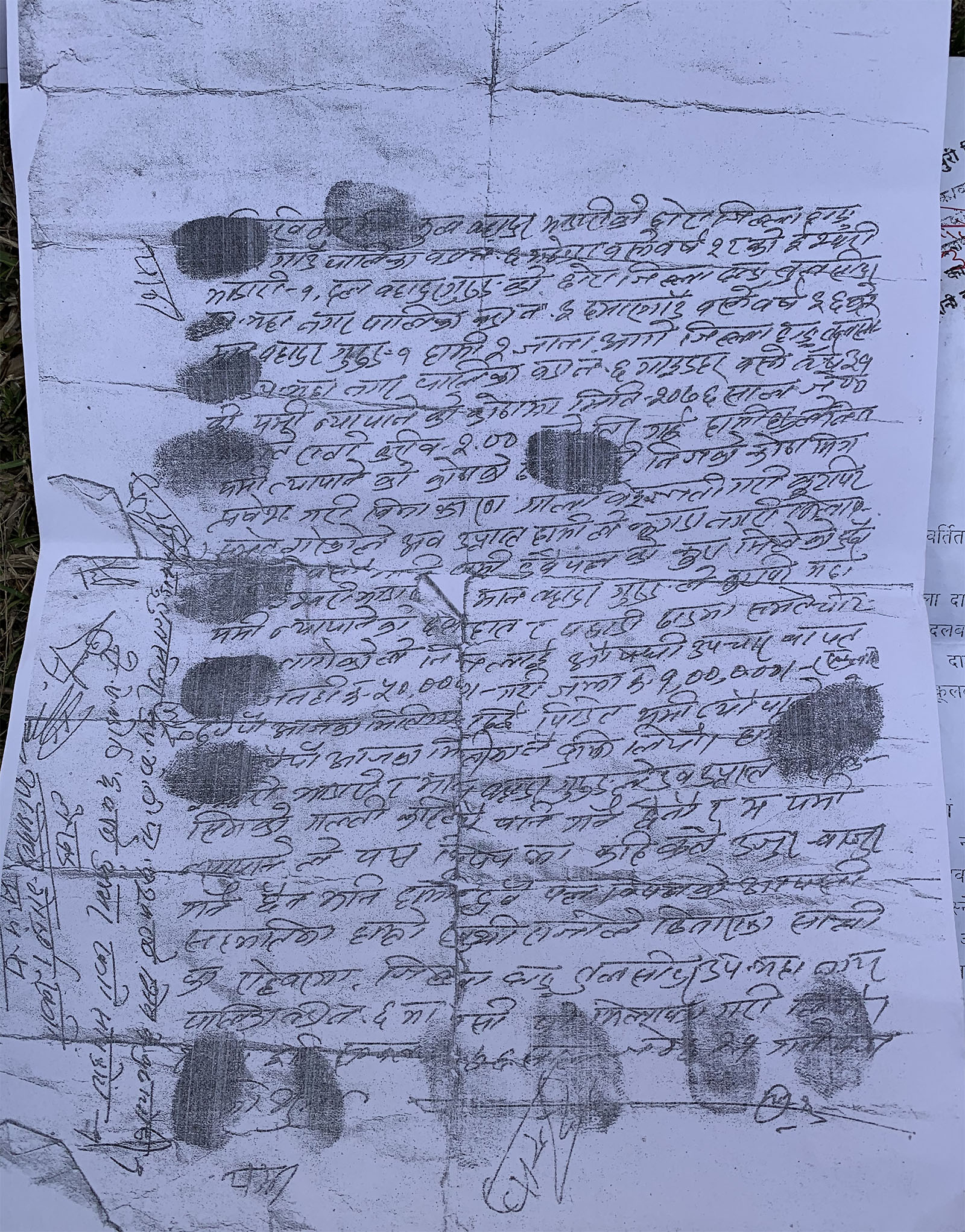
A press note released by District Police Office, Dang informing about people arrested on charge of bargaining for money after threats of rape charges.
The woman, however, says she changed her statement after widespread pressure and thinking of her daughter’s future. “I thought that in the future my daughter would be ostracized for being raped. Our relatives and those of the accused also said that what has happened has already happened,” she said. “So, I was compelled to not move the case forward but was instead sentenced myself.”
There is another dreadful incident in Achham. On January 29, 2022, a 20-year-old boy went to the home of a 19-year-old girl with a marriage proposal. There were only the 60-year-old mother and the girl in the home. The girl, her neighboring friend and the mother were to sleep in one room while another one, where the girl usually slept, was arranged for the boy and his friends. When the girl went to the room to bring her medicines, the boy, arguing that they were soon going to be married, had sex with her.
The boy proposed they elope in the night and the girl agreed. Once they reached the jungle, they once again had sex. But afterwards, the boy said that they can’t get married and left her there stranded.
The teenage girl filed a complaint with the police. And once the case was launched, pressures too started coming in. Some assured that if the girl agreed to acquit the boy, there would be marriage between them. She was told that since her mother was aging, it would be her best option to marry the boy. Then the girl changed her statement in court, saying she had filed the complaint in haste.
The court gave a clean chit to the accused and instead sentenced the girl to three years and six months in prison. District court judge Nabeen Joshi even went against the existing provisions of up to three months jail term for false complainants and sentenced the girl to three years in jail.
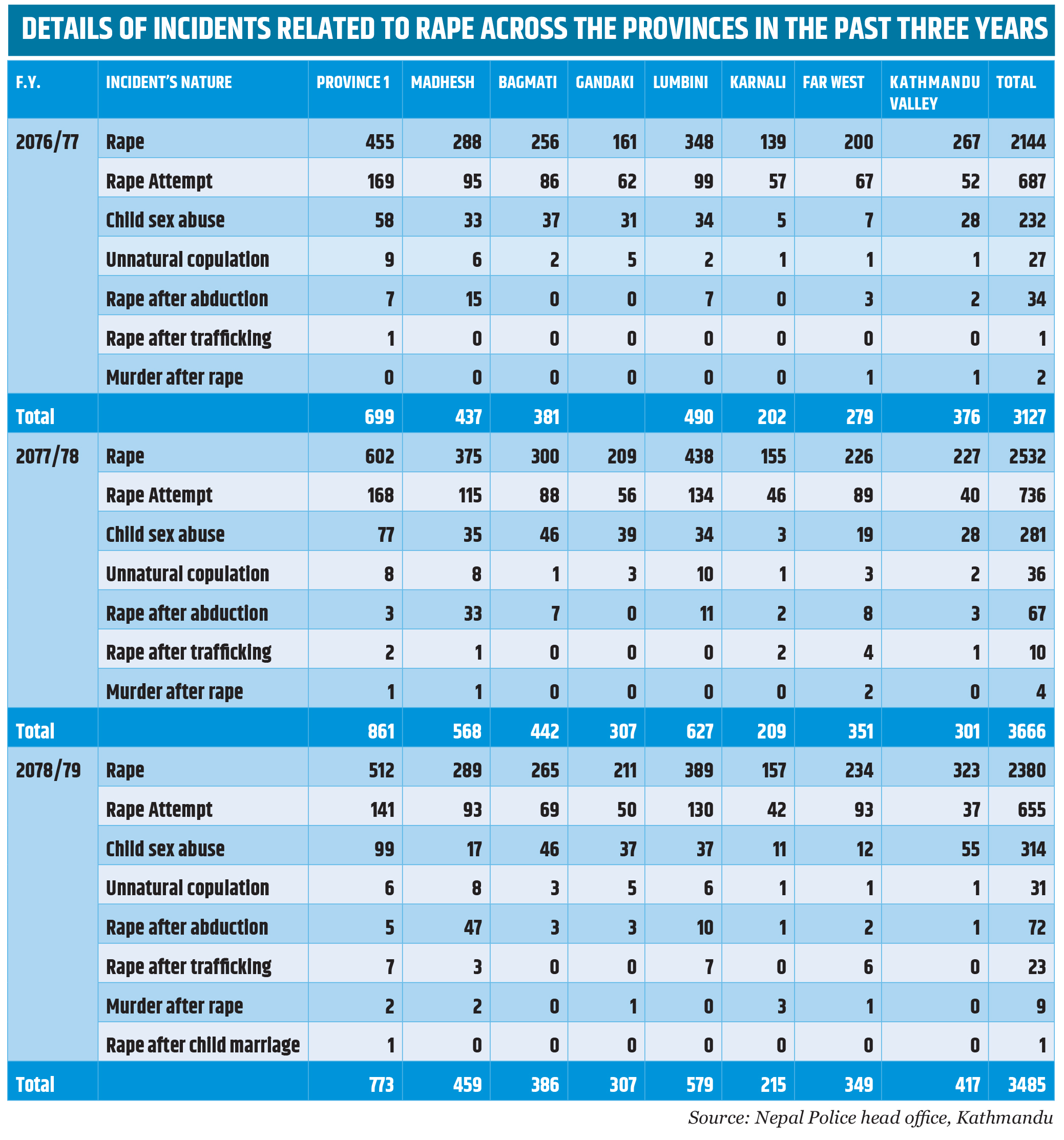
Judge Joshi has written in the order: “It is ordered that the changed name (Dha 2) is sentenced to three years and six months in jail for trying to implicate the defendant on a false accusation under the sub clause 2’s ka (1) of clause 44 of the criminal code 2074.”
But the ka (1)’s provision was not in practice at all. The ordinance to amend the criminal code had mentioned that those filing false accusations should be subjected to half the punishment of the minimum punishment meted out to rape convicts.
Those convicted of raping a woman over 18 is sentenced to 7-10 years in jail. Judge Joshi had sentenced the teenager in this case to half of the 7 year jail term but by the time the order was out, the ordinance was already null.
The law also categorizes sex under somebody’s influence or deception as rape. The Achham district court, in its order, didn’t consider the sex in this case where the accused had promised marriage as rape, and seems to have thought that ‘women file rape cases only to swindle men’.
Another case from Achham is of similar nature. On May 18, 2018, a woman from Dhamigaun in Chaurapati Rural Municipality-4 reached police office to file a complaint that her father-in-law raped her. Her husband was in India for work and while her mother-in-law and sister-in-law were away, her father-in-law had raped her. In his statement, the accused said that since he was drunk that night, he doesn’t remember the incident. The court remanded him to judicial custody.
Later, the victims said that her father-in-law had not raped her but had manhandled her, so she had filed a false complaint. The court, in its order issued 20 days after the case was filed, determined the victim’s latest statement as proof.
Judge Dharmaraj Poudel not only gave a clean chit to the accused but also slapped a fine of Rs3000 to the complainant. Judge Poudel has written in his order that the woman’s ‘complaint and statement are contradictory and since she appears not to have taken the existing laws seriously, she is liable to fine’.
Courts have cited the Criminal Code’s provision to sentence those filing false complaints, overlooking the manifold factors influencing the women to change their statements.
Judge Ritendra Thapa says that since the trend to assassinate someone’s character by filing a false rape charge is on the rise, the court has sentenced those filing false complaints. “Nobody can make rape charge a tool to mete out revenge and as a bargaining chip,” Thapa says. “Since many women have changed their statements later saying the complaint was filed in fit of anger, they are being sentenced and fined.”
Those women who have been at the receiving end of the sentences, however, say that it has doubly victimized them. “Nobody understands our compulsions, and there’s no one by our side when we fight the case,” says a woman from Ghorahi who was recently sentenced. “We can’t fight against the family and the whole society, so it’s better to cede to their pressure than to fight a lonely battle.”
The world over, false statements and perjury are considered criminal. If proven, they are liable to prison sentences. It is considered natural to make laws against those who file false complaints since those falsely accused endure social ostracization and go through ordeals of different kinds. But in Nepal, the trend of punishment against those who file rape cases has raised some serious questions. Are they really false accusations or were the victims forced to change their statements? If women are being punished for forced false statements, how would they muster courage to file rape cases? Will it give rise to a trend where women are forced to bottle up the cases and don’t file cases at all? The courts don’t seem to have considered these questions.
Hostile, but under pressure or in bad faith?
There is no single answer to why rape survivors change their court statement. There is not much study about it either. But after browsing through the courts’ orders and talking with victims and the accused, two trends seem to have become apparent. First, in most of the cases, the pressure from the accused party is so intense that the victims can’t handle it and are forced to change their statement. Second, in a minimum number of cases, complaints seem to be filed to swindle someone and after negotiation about the amount, statements are changed to give clean chit to the accused.
Still in many cases, rape cases are settled without even they reach court. Let’s look at Jumla’s case. Prem Jung Mahat, 48, constantly assaulted a 13-year-old minor who he had kept as goddaughter between Baisakh 2078 and Asar 27, when the girl ingested poison.
Mahat treated the girl instantly and handed her over to her mother. The girl narrated the incident to her mother. After the mother complained about it with Mahat, the latter ‘settled’ the case with devious means. On condition of staying silent, the victim party agreed to settle the case taking Rs700,000 on Shrawan 18. The agreement stated that the amount was paid for the girl’s educational expenses and both would no longer engage in ‘activities that put a damper on their characters’.
In some other cases, however, the cases reach court but once the ‘bargaining’ is complete, the statement gets changed. A 19-year-old girl, for instance, filed a complained with the police that Bibek Pangeni, 21, from Satmuhane in Pokhara-32, had raped her at Namuna Village Restaurant in Sauraha on November 13, 2019.
The court remanded the accused to judicial custody. During court statement, the survivor said that she was not raped but had only signed the complaint written by the police. After this, the court gave a clean chit to Pangeni and sentenced the teenager to one month in jail and Rs63,000 in compensation.
On Asar 7, 2077, judge Hemanta Rawal wrote in his order, “The situation is such that an innocent man is being victimized by false accusation that has dampened his character.”
In Dang, too, there have been deliberate attempts to swindle someone by filing false charges of rape. (See the box)
One the one hand, there are already so many hurdles for rape victims to access justice. And then the law has loopholes. On the other hand, a trend seems to be on the rise where false accusations are made. This upward trend risks making the society’s view towards rape victims more hardened. Advocate Mausam Acharya says false accusations further narrow the path for real victims to get justice.
Women’s rights activists say the issue of ‘bargaining’ and making victims hostile are aspects of violence against women. Lakshmi Acharya, former secretary of women’s rights defense network, says that victims are forced to change their statement upon pressure from family and society and the existing social construct. “Our family, society and state cannot protect victims of rape. They are compelled to fight a lonely battle for justice,” she says. “Ceding to widespread pressure, the victims go to the extent of changing their statement. The judiciary seems to be negligent of this phenomenon.”
Tek Prasad Rai, spokesperson of Nepal Police, says incidents of rape are on the rise. According to him, in the past three years, as many as 10,278 cases were registered in court. And about 3000 rape complaints are registered with the police annually on average.
The rise of ‘bargaining’ phenomenon
A month after getting introduced and a few meet-ups, Pramila Nepali one day invited a gold trader to her place. A few moments after that trader arrived in the night, three more people also came in. Then started the bargaining—the traders were faced with a difficult choice, whether to provide as much money as demanded or to go to jail on rape charge? After two-day long negotiation, the trader handed a cheque of Rs1.22 million over to her.
A month before the trader, from Narayanpur in Ghorahi-10, was called to Nepali’s room, she was sent to his outlet. Afterwards, Nepali would regularly call him on the phone and have lunch together. Finally, as per the plan, she called him to her room. The planners then took the opportunity and made him pay.
The trader then filed a police complaint. The police nabbed Dilipkumar Oli, 40, of Rolpa’s Paribartan Rural Municipality; Pabitra Dangi, 32, of Narayanpur, Ghorahi-10; Bimala Dangi, 32; Shanta Nepali, 29; and Pramila Nepali, 22. At first, they had demanded with the trader a land in Ghorahi. After the land couldn’t get immediately passed, the trader had submitted the cheque instead.
DSP Rajan Kumar Gautam, spokesperson of District Police, said that the swindlers had chosen Pramila, a divorcee, as a perfect character for the scheme. Gautam informed that a case of criminal income charge is currently launched against them.
In another such incident, on 20 June, 2021, a 32-year-old woman, Seetadevi Thapa, called a lawyer asking for help on a loan issue. She met Thapa at Kohinoor Restaurant in Ghorahi-15. At the restaurant, two other woman, Khuma Oli and Sushma Pariyar, accompanied Thapa. They talked about the loan issue for a while and had lunch. Thapa was sitting besides the lawyer. During conversation, they cracked some jokes. The women had shot a video of that. At last, they asked for Rs50 lakhs, and if the lawyer was not willing to provide it, they’d file a rape complaint against him. As their negotiation didn’t conclude that day, the lawyer promised to meet them the day after and went home.
He was called at another restaurant after a few days. “Some goons came up and threatened me then,” the lawyer says. “They said they’d call the police to arrest me. As I saw no other recourse, I promised to pay Rs18 lakhs.” The lawyer immediately called up a friend and handed over Rs1 lakh in cash and a cheque of Rs17 lakh to them.
After that, the lawyer decided to go to the police. The police looked over at the audio recording of their phone conversation and live meeting. They arrested three women with the cheque. Now a case on charge of theft, criminal deceit and income has been registered against them.
SP Suresh Prasad Kafle says that these incidents show that crimes are being committed with false rape charges as tool.
Nava Raj Subedi, an assistant professor of sociology at Mahendra Multiple Campus, Dang, says that it doesn’t bode well for society when rape charge is taken as a bargaining chip.
This also risks making the struggle of the real victims of rape even more difficult. Maybe because of these kinds of incidents, the judges who sentenced real victims of rape might have been led to believe that those were ‘fake’ victims after all.


